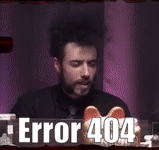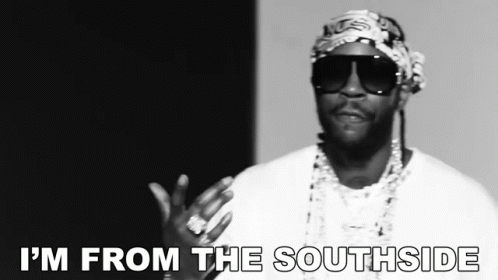How You Spend Your Time Matters (Stuff U Didn't Know)

Struggling to live on 24 hours a day? Work and goals not adding up? Horrible at advanced equations?
Life's tough – get a helmet.
There's SO MUCH stuff you wanna do.
There's ideas to execute, dreams to chase, and dollars to make.
Yet –
You spend 97.03% of your day paralized.
Paralized by everything you should be doing –
but you're not.
You're either incredibly busy, incredibly procrastinating, or incredibly skilled at both.
The to-dos you've scribbled down two months back?
You're too chicken to look at them.
You'll get there...
Once you find the time.

Hate to break it to u, friend.
You'll never.
You might as well bury your business dreams on the graveyard of 'someday–maybe' town–
inside a coffin made of client emails, X notifications, your boss's voice notes and next week's grocery list.

Thanks Lessa, ure a real friend.
I know.
I'm setting your expectations.
You want back control, right?
There's exactly 1 way this is gonna happen:
You hacking your focus.
'I can't concentrate for longer than a YouTube ad.'
'My coworkers rely on me, I can't shut em out.'
'My mum needs help executing a power cycle.'
I know.
Today, we're not finding time –
we're finding ways to control it.
Time blocking.
(Deep Work)
2. Why?
Time tracking.
(Type stuff)
3. How?
Time management.
(Yeah an app)
4. Bonus: ________
(How u make your mum happy)
Btw, I'm writing this post for me.
(cz this year's been wild)
Tick tock lettz go.
1) Time blocking.
Since you're here, I'm assuming you're a knowledge worker.
Someone who isn't building with their hands –
but their mind.
(Keyboard warrioring doesn't qualify as craftsmanship)
As such...
You're living off mental real estate.
Your work's value is measured in
- the quality of your ideas
- your ability to communicate them.
Surprisingly enuff –
this requires you to focus.
Intensely.
For longer than a YouTube ad.
This past week, I've focused on reading 'Deep Work' by Cal Newport.
I've been wanting to make a point finishing it in 2 days time –
but let's be real.
(took me 5)

The main idea Cal's arguing is the increasing scarcity and therefore economic value of 'Deep Work'.
Deep work is described as uninterrupted periods of time of intense focus –
pushing you to the limits of your cognitive abilities + producing groundbreaking results.
In short:
You mindhacking your way into a flow state.
In this day n age...
A kind of focus that's leading the endangered species list.

Wanna escape the crippling claws of AI?
Wanna win in the new info economy?
Wanna show that kid from college?
2 rules:
Learn how to
- Master hard things quickly.
- Produce at an elite level – both in quality and speed.
High-Quality Work Produced =
(Time Spent) x (Intensity of Focus)
Soul-crushingly for you:
Rn, u got none of those.
Here's hope.
In 263 pages, your friend Cal proves you CAN achieve anything you set your mind to –
if you set your mind to it right.
He also tells you how:
4 strategies for intense focus.
'Who you are, what you think, feel, and do, what you love –
is the sum of what you focus on.'
– Winifred Gallagher, science writer
Your day is different from mine, your responsibilities are different from mine (kids vs cows) and me telling you to adopt my strategy –
not gonna work.
But since nothing works until you do –
take this week off to decide on your philosophy of scheduling your flow states (aka deep work).
Cal Newport offers 4 ways of dividing your time + attention:
(3's the best)
1) The Monastic Philosophy.
Required:
An insane amount of clarity on what you need to achieve, and how it's making you a crapton of cash.
Example:
You're a bestselling author or professor solely relying on the quality of your prime piece of work.
Execution:
Shut down all communications with the outside world as a lifestyle (emails, socials, shallow in person contact) and lock yourself in a castle.
(sure)

2) The Bimodal Philosophy.
Required:
Flexibility to divide your time to carve out long periods dedicated to deep work.
Like the monastic philosophy, but seasonal.
Example:
You're a psychologist called Carl Jung alternating months of deep work in a distraction-free cottage with his busy schedule of clinical work in the city.
Execution:
4 days/week dedicated to intense and uninterrupted concentration –
3 days of handling shallow tasks (the busy stuff).
Or:
The summer spent focusing –
The rest of the year being a busy dopamine hoe.

3) The Rhythmic Philosophy (yay).
Required:
A fixed set of hours dedicated to deep work every day.
Example:
You have a full time job –
n you need to squeeze some work in for your business.
Execution:
a) The chain method.
Get a calendar (a real paper one) and cross out every day you've worked on your business with an X.
In a few days, you'll own a neat little chain of Xs...
You won't like to see break.
b) The rhythmic method.
Set a fixed start time every day to turn your work into a habit.
I.e.: every morning from 5:30 - 7:30 am.
This approach performs especially well cz it saves you time & energy deciding if and when you wanna work on your goals.
cz let's be real –
'For a lot of bosses, the standard is that you're free to focus as hard as you want... so long as the boss's emails are still answered promptly.'
I do have proof.
This approach got me through the years of COVID –
and made me who I am today.
(a micro creator struggling to grow on X)

A day in the life...
I'd start my days getting up at 5 am (had read another book),
following 30 min each of
- coffee, day planning & staring into space
- reading
- going for a walk
- exercising
- breakfast
I then began working on my side project (learning coding basics or motion design, building websites) at 8:00 am sharp.
By 11 am, I was done with my personal goals for the day –
and open to take on freelance work as a news editor.
(starting around 11:30 am)
Those days were packed. Worth it?
You bet.
(pls don't ask me why I stopped)

'You're still short of 1 strategy...'
Thanks for counting.
Cal Newport mentions a 4th approach he calls 'The Journalistic Philosophy' –
which is essentially starting deep work whenever there's a hole in your schedule.
'I like this one. I can do that.'
Sure.
It's the most flexible we've seen.
It's also the
- least reliable
- least controllable
...and requires you to be motivated + disciplined af.
(cz willpower is finite n distractions are plenty)
U wanna stake your business on that?!

Remember –
ur goal is to get you into deep focus mode as smoothly and regularly as possible.
(To get from a state of existing in chaos...
To a state of existing in less chaos)
Read 'Indistractable' by Nir Eyal.
It's how I've been living without socials notifications (Instagram, Whatsapp, Telegram, X) for 4.5 years now.
Didn't die.
(Nor did anybody else)
Now...
We've briefly touched on keeping track of your time when making Xs on your calendar –
or scheduling fixed deep work hours.

But why's that crucial for ur performance?
Once you've identified a wildly important goal you wanna make progress on in your business –
you'll need some tools to measure your success.
Let's say my wildly important goal is becoming a better writer.
How tf do I track my performance if I don't have LinkedIn gurus to compliment me on my posts?

Lag measures & lead measures.
1) Lag measures.
Describe the thing you're trying to improve.
Example: Writing.
Problem: The result (becoming a better writer) comes too late to change your behavior.
We'll need a better metric.
2) Lead measures.
Measure the new behaviors that'll drive success on the lag measures.
Example a –
Producing...
- 3 short posts/day
- 1 long post/week
- 1 blog post every 2 weeks
Example b –
Spending 2 hours/day on deep writing.
Problem: Your discipline.
Other problems: None.
You've just made your success quantifiable.
(ure smart)
2) Time tracking.
Got a vague idea of how to track time to measure your success?
Awesome.
Cz u don't need to be the sharpest knife in the drawer to realize...
People fight desires all day long.
(Not u tho)
To stay focused, we need to hack 1 crucial factor:
your environment.
Here's what personality science has to say on the matter:

8 of the 16 MBTI types are hyper influenced by their environment –
for better + for worse.
I'll spare you the cognitive function theory.
(talkin Se/Ni users here)
If you're one of the following, you benefit from scheduling and time tracking more than anybody else:
- ESTP (Entrepreneur)
- ESFP (Entertainer)
- ENTJ (Commander)
- ENFJ (Protagonist)
- ISTP (Virtuoso)
- ISFP (Artist)
- INTJ (Architect)
- INFJ (Advocate)
(btw I strongly believe our book daddy Cal is an INTJ –
hence his strong love for tools)
(Google believes so too)
BUT you're here for the science. (kinda)
As an Se user (wtf?), your experience is outward focused –
your surroundings heavily impact you.
That's your home, your car, your job, your friends, your block, your house plant and the state of your desk.

Mess it up – get nuffin done.
I don't make the rules.
Also, your memory is... impaired.
You'll forget 'important' details –
like your in-laws birthday or the number of your license plate.
(again, I don't make the rules)
But there's good news:
Your introverted intuition allows you to laser focus in on a topic and get the most out of deliberate practice...
Making you a fast learner w/ a quick reaction time.
(If and when you start – and your environment supports it)
That's why you
- Put reminders everywhere.
- Set fixed start times.
- Clean your desk.
- Track your time, progress and celebrate your wins –
coz you'll actually forget.
Huh?
ISTPs/ISFPs/INTJs/INFJs be like –
I WANT
I WANT
I WANT –
I WANT MORE.
You set a goal so lofty –
you actively forget what you've already achieved.
Sooooo...
set attainable short term goals and accept your success for what it is.

You guys already strive in routines, are better with discipline and your environment doesn't faze you as much –
doing new stuff does.
(Go do it)
Eeeenuuuffff of the horoscopes.
We want results (and dopamine hits).
Let's crank up your accountability entering in competition –
with yourself.
(cz you've always wanted to one-up a winner)
U play differently when keeping score.
That's why u keep a compelling scoreboard.
A what?
A place to religiously record and track your lead measures.
3) Time management.
'The thing people fail most in...
is accountability.'
– Diana Elenkova, important CEO
Now we've established that the deep work you've so carefully carved out of your day...
Doesn't provide you with much dopamine hits.
Satisfaction?
All-time low.
Also, u wanna feel in control over your time and tasks, so...
'Pls not another productivity app.'
– Another productivity app.

'The best productivity tool is no productivity tool' –
I hear ya, but as we've seen with psychology...
some types crave one.
I've tried pen & paper, physical calendars, Google Calendar, Notion, Todoist,...
but the 1 that stuck with me:
Sunsama.

Next to its competitor Todoist it's expensive af...
(no free plan – $16/month
vs free plan – $4/month)
...but it 10x your hard earned dollars.
How?
Psychology based motivation, accountability and peace of mind through
- daily & weekly goals setting
- project & time tracking
- contexts & labels for different projects/personal/work goals
- integration with apps like Google Calendar
- time blocking and quantifying your tasks
- timer for tracking the actual time spent on a project vs your estimated guess
- daily reports
- weekly reports
- planning rituals
- shutdown rituals,...

Sunsama ties together everything we've learned about Deep Work, psychology + personality science –
so letzz optimize ur day for success.
Every morning:
1) Review yesterday.
Check what you got done –
n how you spent your time.
Win right there.

2) Set the goals for the day.
- identify 1 wildly important task for deep work
- timeblock a period of deep focus (i.e. 5:30 – 7:30 am)
- attach the task to your weekly goals (you'll get a time report at the end of the week)
- label your tasks by category
- braindump every other tasks coming to mind + estimate how long it'll take you to complete them
- pick a few minor (urgent) tasks for times of low focus (i.e. afternoon for administrative 'busy' work)
- move the rest your tasks to later in the week –
or archive them in the backlog depending on priority
(u can pull them out later when u find time)
(never)

3) Don't overplan.
Sunsama asks you to estimate the time it'll take you to complete a task.
That's awesome –
n you'll grossly blow it starting out.
After a few weeks of seeing your optimistic estimates vs the actual time spent...
You'll have greater control over your expectations and client projects.
(n write better bills)
Overplanning frustrates the hell out of u.
Don't do that.
(The app reminds you to move stuff to another day –
you'll get an 'unrealistic workload' error.)

4) Start working.
Every time u complete a task, tick it off immediately to reap your dopamine reward.
(you'll hack your brain into building your work habit faster)
Sunsama also tracks your time of completion (11:01 am) –
and asks you to note down the actual time you've been working on it.

5) Review your day n shut down.
Don't miss this step.
Reflection helps you identify issues, celebrate your wins and plan more realistically for tomorrow.
A shutdown ritual gives your mind permission to disconnect –
cz every pending task is accounted for and planned for another day.
OCD paradise.
'Great, but $16.....'
There's no other app that gives you THIS amount of control and peace of mind.
Trust me.
(0 doubts Sunsama is built on top of the principles in Deep Work)
If you're signing up via my link, you're
a) supporting me, and
b) getting a 30-day-free-trial instead of just 14.
Worth it?
Lemme know.
TL;DR
U still here?
U got nerves (n some serious focus).
Today you've learned:
- why deep focus is crucial to you one-upping ur biz bros
- how u get into it
- why time tracking matters (n how u brainwash yourself)
- how u set up your environment to get stuff done
- why ure not motivated
- how u control the shit out of your 24h
This is my longest ever post, my latest ever newsletter (hi), my latest started post (Sunday) –
so I def got the time management down.

(No)
Share this piece of focused brilliance and tag me on X.
(Actually, I already did)
(You can still share + tag me on X)
'But you've promised me a bonus...'
Sure.
4) Bonus: How u make ur mum happy.
U don't –
but u can teach her how to execute a power cycle.

Sooo... now that you know what you do with your time...
I got an idea.
Go do it.
xx Lessa

